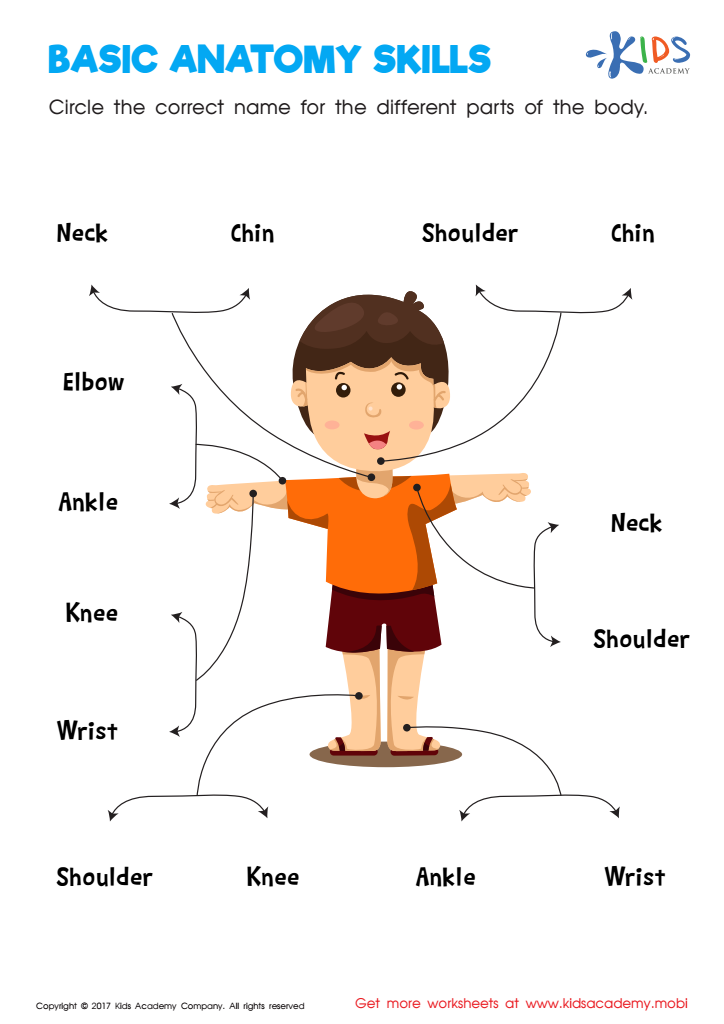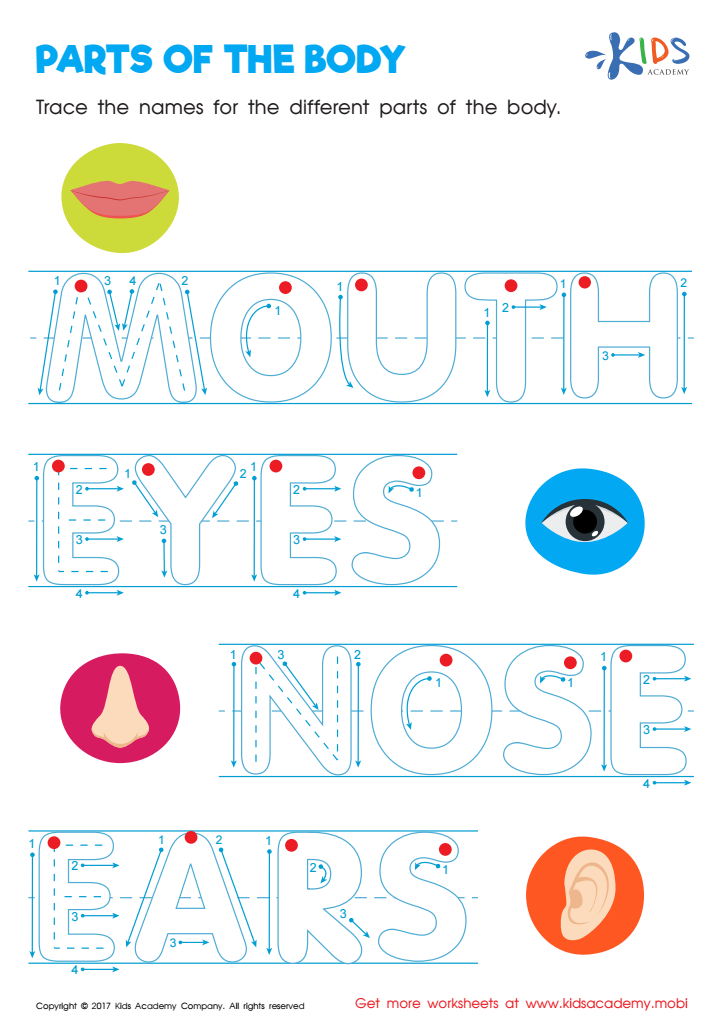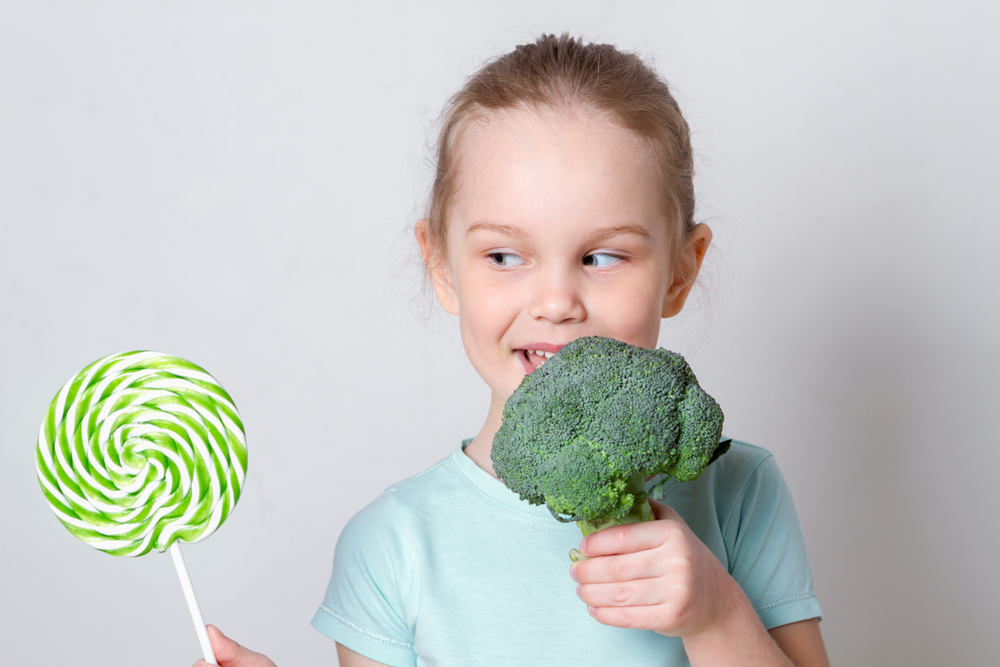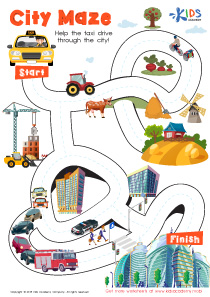Fun and Educational Human Body Worksheets for Ages 3-4 | Kids Academy Answer Key
4 filtered results
-
From - To
Discover the wonders of the human body with our engaging "Our Body and Health" worksheets, specially designed for curious minds aged 3-4. These interactive sheets are crafted to introduce young learners to the basics of human anatomy and the importance of staying healthy in a fun and accessible way. From learning about different body parts to understanding simple health habits, our worksheets are filled with colorful illustrations and activities that spark curiosity and encourage early learning. Perfect for preschoolers, "Our Body and Health for Ages 3-4" is your child's first step into a lifelong journey of health awareness and self-discovery.


Robot Printable


Alien Worksheet


Basic Anatomy Skills Printable


Worksheets on Our Body and Health for Ages 3-4 are an invaluable tool in the foundational education of young children. At this critical stage of development, children are naturally curious about the world around them, including their own bodies and how they function. These specialized worksheets are designed to harness this curiosity, turning it into a productive learning experience.
These worksheets serve several key purposes. Firstly, they introduce basic concepts related to health and the human body in an age-appropriate manner. This could include identifying body parts, understanding the importance of hygiene practices, or simple habits that promote health. Secondly, by engaging with these worksheets, children enhance their cognitive skills through activities such as matching, coloring, and tracing, which are not only educational but also enjoyable.
Moreover, Our Body and Health worksheets for Ages 3-4 lay the groundwork for lifelong health and well-being. They instill an early awareness and appreciation of the body, encouraging children to care for themselves and others. Additionally, these worksheets often involve interactive elements that require adult participation, fostering meaningful conversations between children and caregivers or educators about health and well-being.
In summary, Our Body and Health worksheets for Ages 3-4 are a crucial educational resource. They not only educate young learners about their bodies and how to keep them healthy but also stimulate cognitive development and parent-child interaction, making them a fundamental part of early childhood education.
 Assign to My Students
Assign to My Students











